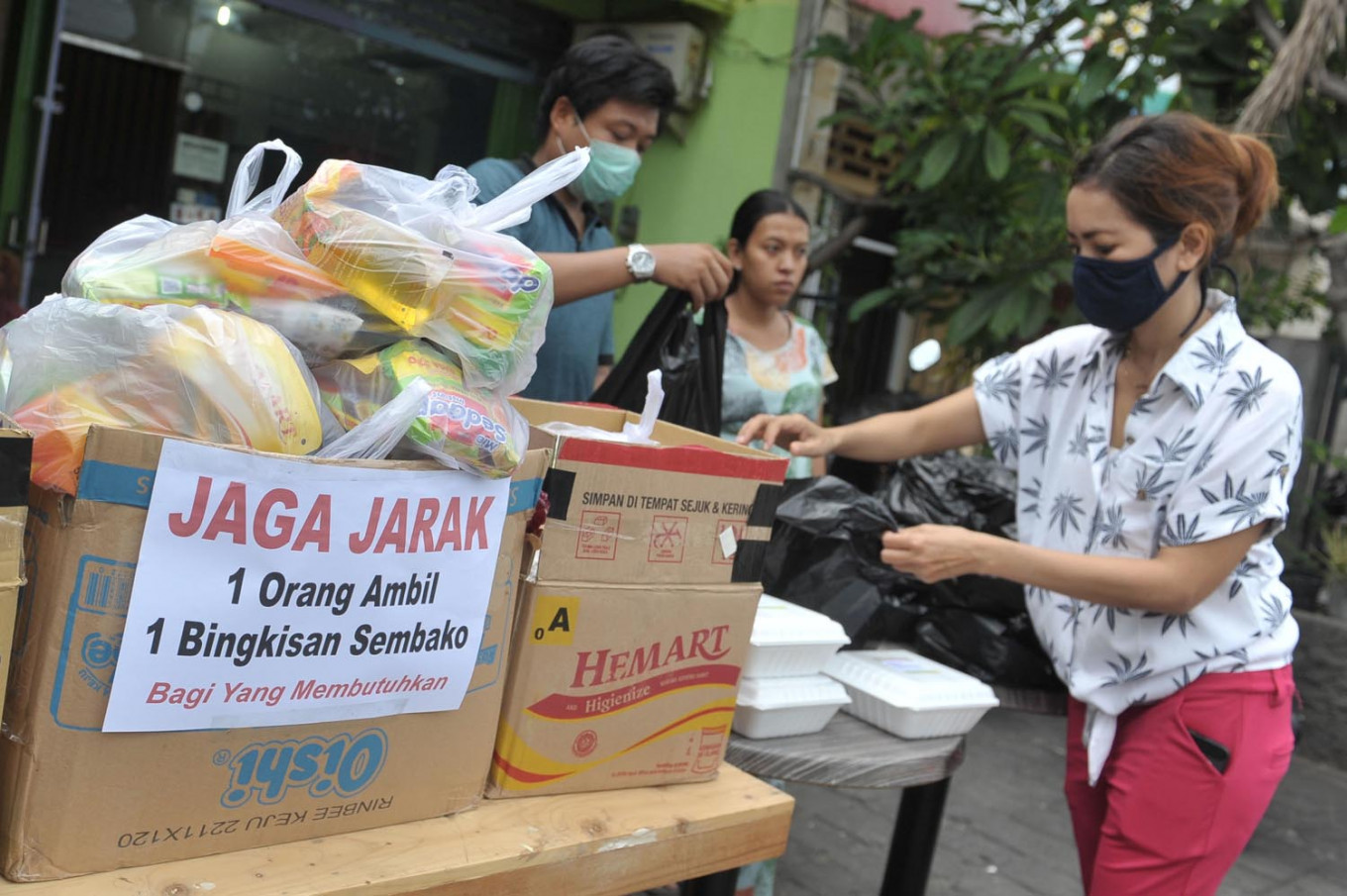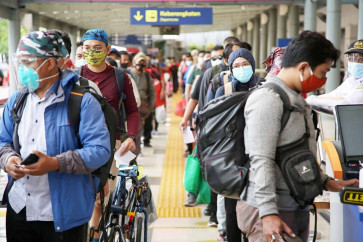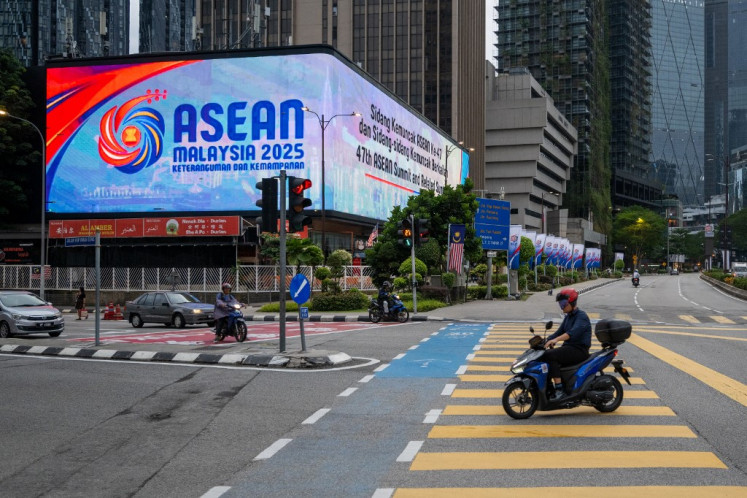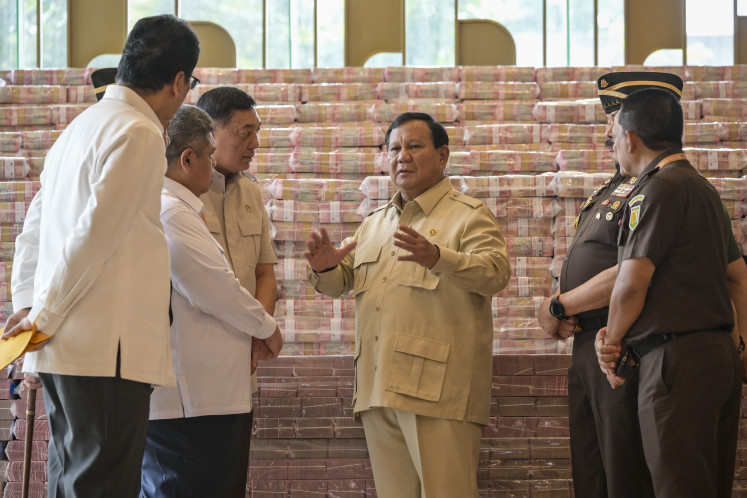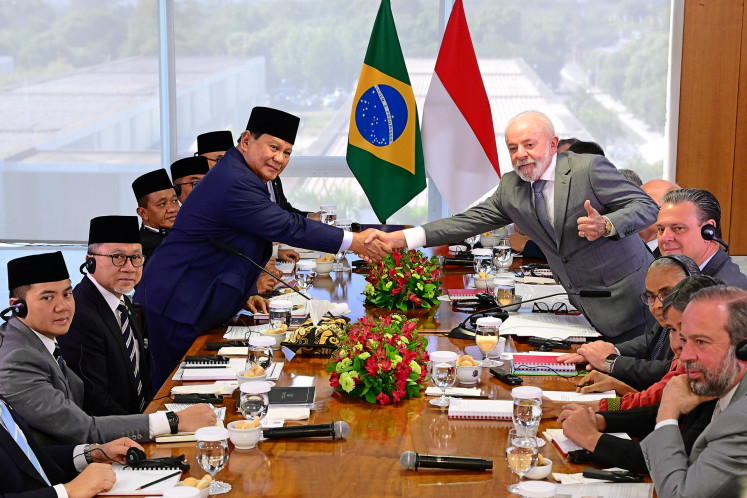Popular Reads
Top Results
Can't find what you're looking for?
View all search resultsPopular Reads
Top Results
Can't find what you're looking for?
View all search resultsSome good COVID-19-related news for a healthy dose of optimism
A spoonful of good news makes the medicine go down.
Change text size
Gift Premium Articles
to Anyone
I
t has been almost two months since President Joko “Jokowi” Widodo announced the first COVID-19 cases in the country, which has since been gripped by fear as the outbreak continues to grow.
A collective sigh of relief was heard throughout the archipelago when the government decided to ban this year’s Idul Fitri tradition of mudik (exodus) to curb the transmission of the disease.
That was not the only good news this week. The Jakarta Post has compiled some additional positive stories to provide a dose of optimism amid the outbreak:
Stronger together
While COVID-19 patients and suspected carriers have often been stigmatized, some residents of Central Jakarta have reached out to help three siblings in their neighborhood who were left without their parents as a result of COVID-19.
The siblings were left alone after their mother was quarantined by health authorities in the wake of her husband’s death and burial according to COVID-19 safety protocols.
Meanwhile, some Jakartans have decided not to participate in mudik to protect their loved ones in their hometowns.
Members of the LGBT community in Manado, North Sulawesi, raised funds and distributed aid to elderly people and others affected by the outbreak.
Read also: Video: A Ramadan like never before
A friend in need is friend indeed
Foreign Minister Retno LP Marsudi said Indonesia had received US$3 million and medical supplies from the United States for COVID-19 relief. US President Donald Trump also promised President Jokowi that he would send ventilators once the equipment was ready.
South Korea sent polymerase chain reaction (PCR) testing kits to Indonesia as part of the country’s US$500,000 in-kind grant to help Indonesia battle the outbreak.
More local initiatives to support the treatment of COVID-19 patients and expedite COVID-19 testing
As a greater number of ventilators has become necessary to treat COVID-19 patients, the Bandung Institute of Technology (ITB) and the Padjadjaran University Medical School in West Java have worked together to produce the equipment. A new batch of ventilators is expected to ship soon as they have met the Health Ministry’s general safety criteria.
Diponegoro National Hospital in Semarang, Central Java, launched the first drive-through PCR testing location for COVID-19 in Central Java – allowing people to have samples taken and tested without getting out of their vehicles.
Researchers at Gadjah Mada University (UGM) in Yogyakarta created a swab chamber to protect medical workers taking samples from patients to help lessen the adverse effects of the shortage of personal protection equipment (PPE).
Read also: Staying positive: A roundup of good COVID-19-related news
Light at the end of the tunnel
Because the government has banned this year’s mudik and imposed large-scale social restrictions (PSBB) in some regions, the Indonesian Doctors Association (IDI) has predicted the outbreak will end in June. The association considers the policies sufficient to break the chain of transmission in the country.
A bright future for the country’s economy may also be on the horizon as surveys have shown that more than half of Indonesians are optimistic about the economy’s outlook and expect to spend more after the pandemic.
The outbreak may also provide an opportunity for certain business to flourish.
As patients recover, the Earth does too
As Jakartans have been trying to stay home, the capital has seen clearer skies. Even nearby mountains have become visible from the city. Authorities have reported that the air quality has improved since the policy was imposed in late March.
The outbreak has reignited calls to stop the wildlife trade, which has been a hotbed of zoonotic disease transmission, including in Indonesia. Environmental authorities have also been working around the clock during the pandemic to preserve Indonesia’s biodiversity.

